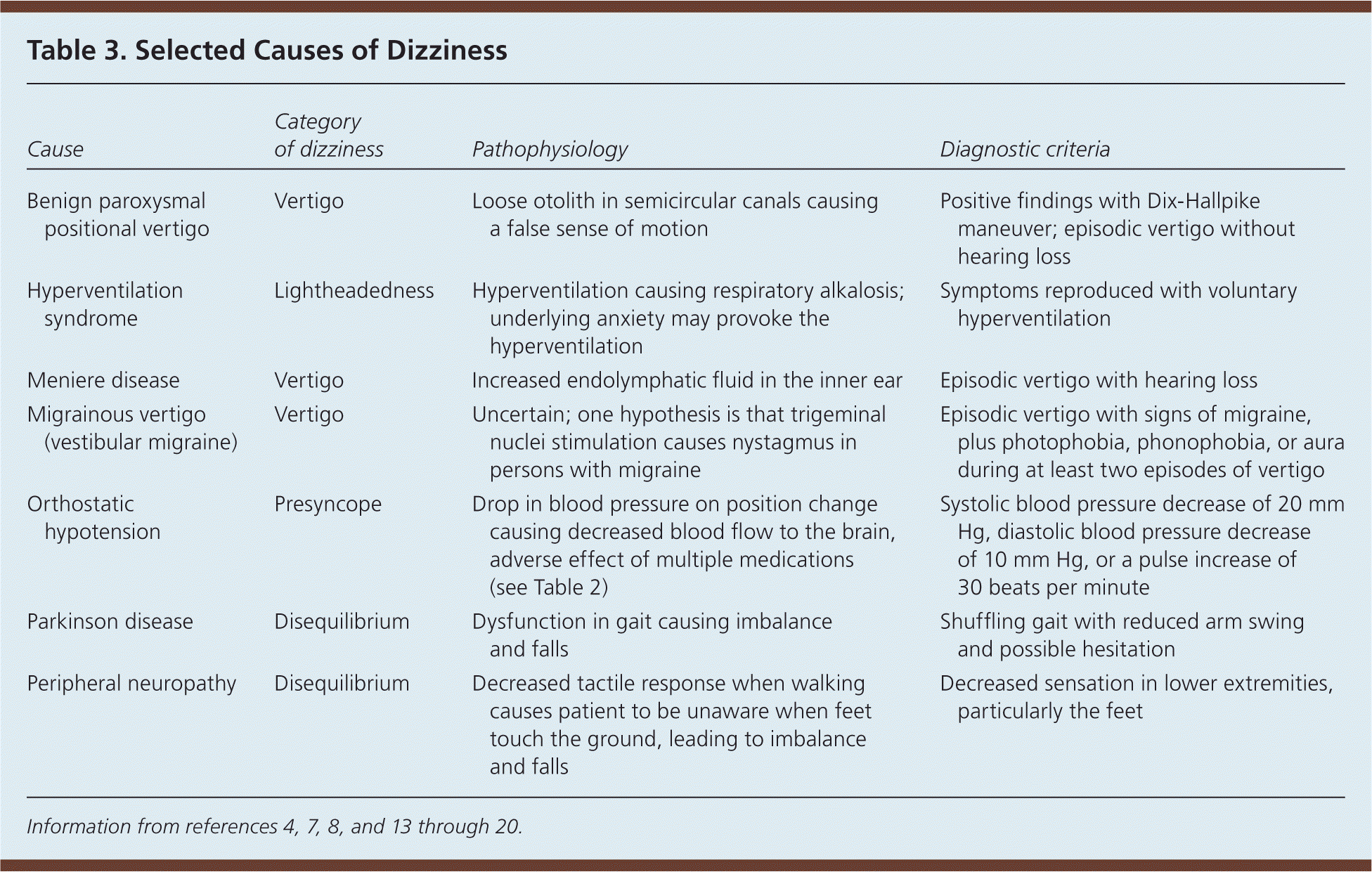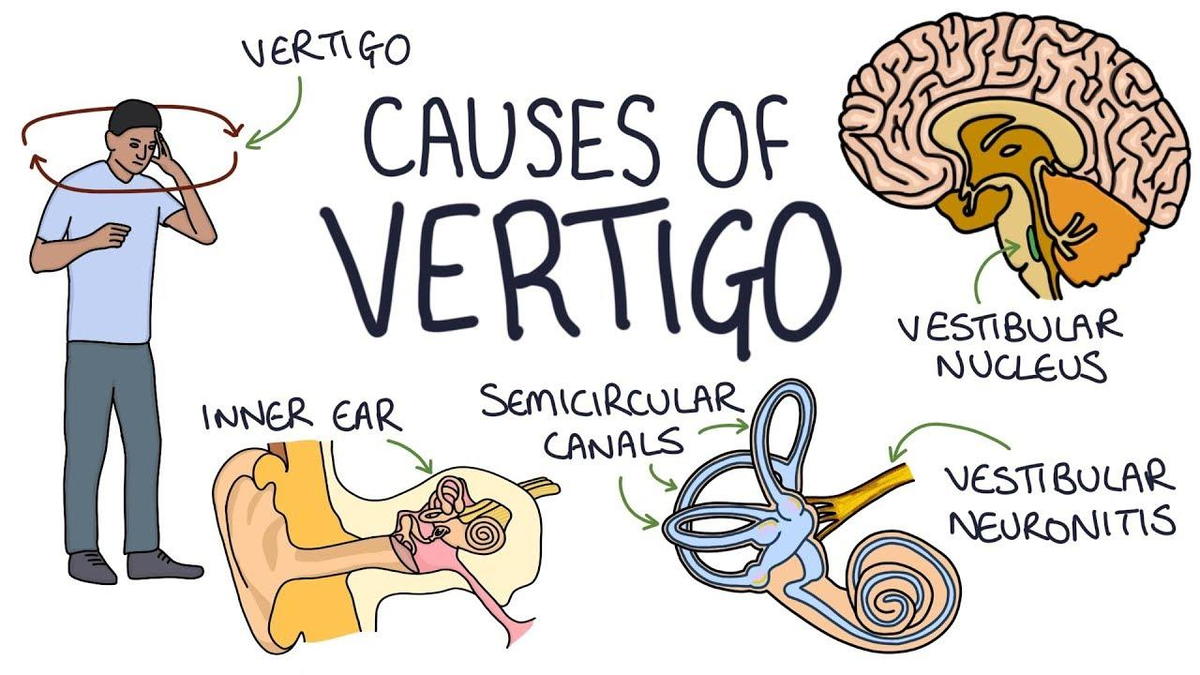What causes vertigo and what are the symptoms – Delving into the realm of vertigo, this comprehensive guide unveils the underlying causes and unveils the myriad of symptoms associated with this condition. By exploring the intricacies of vertigo, we empower individuals to gain a deeper understanding of its impact on daily life and well-being.
Vertigo, a condition characterized by a false sense of spinning or movement, can stem from various factors, including inner ear disorders, neurological issues, and even certain medications. Its symptoms often manifest as dizziness, imbalance, nausea, and difficulty concentrating, significantly affecting an individual’s quality of life.
What Causes Vertigo?
Vertigo is a sensation of dizziness or spinning that can be caused by a variety of underlying medical conditions. It can be classified into two main types:
Peripheral Vertigo
Peripheral vertigo is caused by problems in the inner ear, which is responsible for balance. Conditions that can affect the inner ear and cause peripheral vertigo include:
- Benign paroxysmal positional vertigo (BPPV): A condition where tiny crystals in the inner ear become dislodged and move into the wrong part of the ear.
- Ménière’s disease: A disorder of the inner ear that causes episodes of vertigo, hearing loss, and tinnitus (ringing in the ears).
- Vestibular neuritis: An inflammation of the vestibular nerve, which connects the inner ear to the brain.
Central Vertigo
Central vertigo is caused by problems in the brain, particularly in the brainstem or cerebellum, which are responsible for coordinating balance and movement. Conditions that can affect these areas and cause central vertigo include:
- Stroke: A disruption of blood flow to the brain, which can damage the brainstem or cerebellum.
- Multiple sclerosis: A chronic autoimmune disease that affects the central nervous system, including the brainstem and cerebellum.
- Brain tumors: Growths in the brain that can compress or damage the brainstem or cerebellum.
Symptoms of Vertigo

Vertigo, a condition characterized by a sensation of spinning or dizziness, manifests through a range of symptoms that can significantly impact individuals’ daily lives. These symptoms can be subjective and vary in intensity and duration.
Vertigo is a common condition that causes a sensation of spinning or dizziness. It can be caused by a variety of factors, including inner ear problems, migraines, and certain medications. Symptoms of vertigo can include nausea, vomiting, and difficulty walking.
While there is no cure for vertigo, there are a number of things you can do at home to relieve symptoms. For more information on vertigo cures at home, click here . If you are experiencing symptoms of vertigo, it is important to see a doctor to rule out any underlying medical conditions.
Subjective Experiences of Vertigo, What causes vertigo and what are the symptoms
Individuals with vertigo often describe a false sense of movement, as if they or their surroundings are spinning. This can range from a mild sensation of swaying to an intense feeling of being off-balance or falling. Other subjective experiences include:
- Nausea and vomiting
- Sweating and cold sweats
- Difficulty concentrating and focusing
- Ringing in the ears (tinnitus)
- Sensitivity to light and sound
Diagnostic Tests for Vertigo
Vertigo can be diagnosed through a variety of tests, which help determine the underlying cause. These tests may include physical examinations, imaging techniques, and balance tests.
During a physical examination, the doctor will check for signs of nystagmus, which is an involuntary movement of the eyes that can be a symptom of vertigo. They will also test your hearing and balance, and look for any abnormalities in your ears, nose, and throat.
Imaging Techniques
Imaging techniques can be used to visualize the structures of the inner ear and brain, and to identify any abnormalities that may be causing vertigo. These techniques include:
- Magnetic resonance imaging (MRI)uses strong magnets and radio waves to create detailed images of the brain and inner ear.
- Computed tomography (CT) scanuses X-rays and computers to create cross-sectional images of the brain and inner ear.
- Ultrasounduses sound waves to create images of the blood vessels in the head and neck, which can help identify any blockages or abnormalities that may be causing vertigo.
Treatment Options for Vertigo

Treatment for vertigo depends on the underlying cause and may involve medications, physical therapy, or surgical intervention. It’s crucial to seek medical attention if you experience persistent or severe vertigo to determine the appropriate treatment plan.
Medications
- Antihistamines:Reduce nausea and dizziness associated with vertigo.
- Benzodiazepines:Sedatives that can help alleviate anxiety and dizziness.
- Vestibular suppressants:Suppress signals from the inner ear to reduce vertigo.
Physical Therapy
Vestibular rehabilitation exercises can help improve balance and reduce vertigo symptoms. These exercises focus on retraining the brain and inner ear to work together effectively.
Surgical Intervention
Surgery may be considered in rare cases where other treatments have not been effective. Surgical options include:
- Vestibular nerve section:Severing the nerve that sends signals from the inner ear to the brain.
- Labyrinthine surgery:Removing or destroying the part of the inner ear that is causing vertigo.
Lifestyle Modifications for Managing Vertigo
Making certain lifestyle changes can significantly improve the quality of life for individuals with vertigo. These modifications include dietary adjustments, regular exercise, and effective stress management techniques.
Dietary Modifications
A balanced diet can help manage vertigo symptoms. Maintaining proper hydration by consuming plenty of fluids, such as water, is crucial. Limiting caffeine and alcohol intake is also recommended, as these substances can worsen symptoms.
Exercise
Regular exercise can strengthen the vestibular system, which plays a vital role in balance. Exercises that involve head movements, such as yoga or Tai Chi, can be particularly beneficial. It is important to start slowly and gradually increase the intensity and duration of exercise as tolerated.
Stress Management
Stress can trigger or worsen vertigo symptoms. Engaging in stress-reducing activities, such as meditation, deep breathing exercises, or spending time in nature, can help manage stress levels and improve overall well-being.
Final Thoughts: What Causes Vertigo And What Are The Symptoms
In conclusion, understanding the causes and symptoms of vertigo is paramount in effectively managing this condition. Through proper diagnosis and tailored treatment plans, individuals can regain their balance and alleviate the debilitating effects of vertigo. Remember, seeking medical attention promptly is crucial for accurate diagnosis and appropriate interventions.
